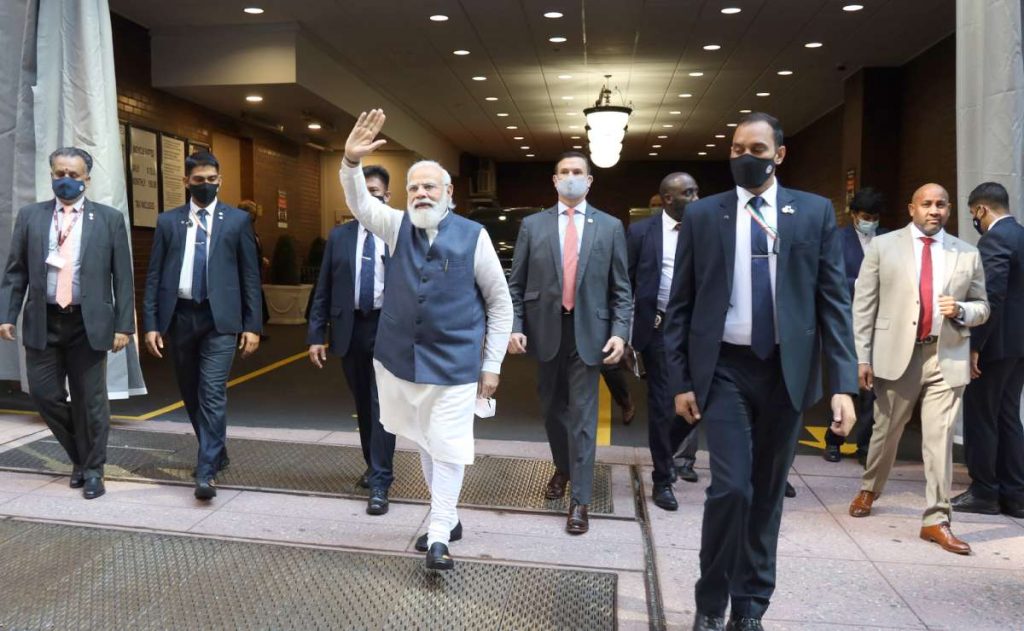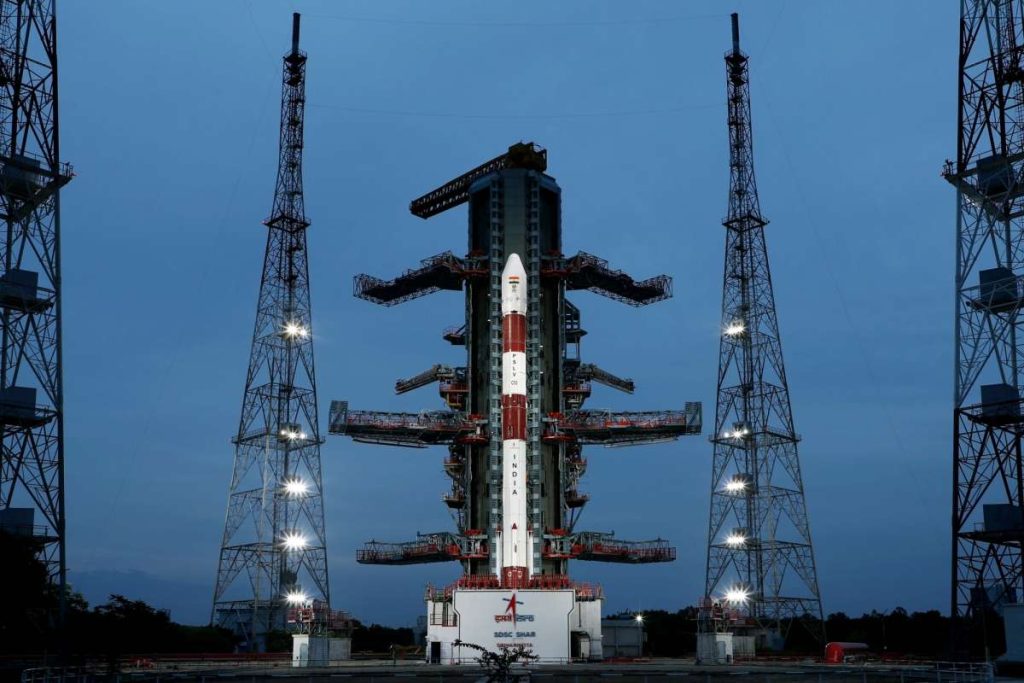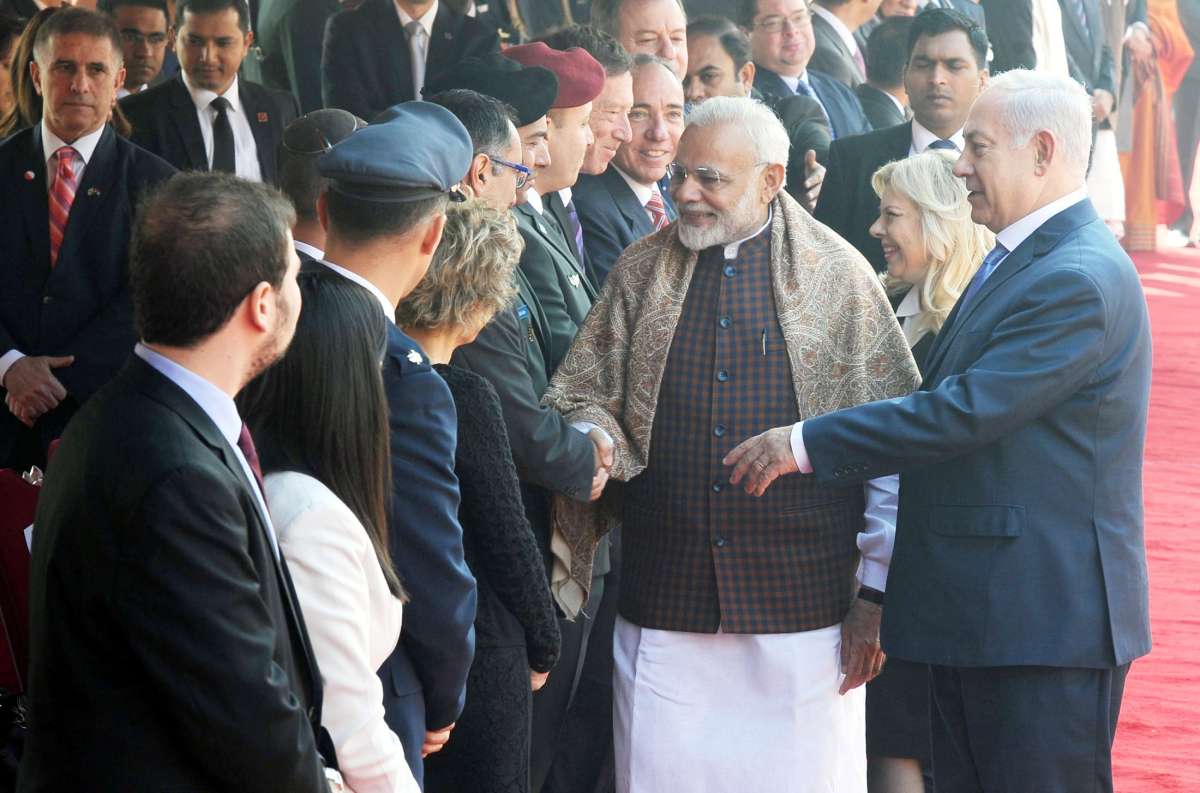India is seen to be in the sweetest geopolitical spot since 1947- to be a third, independent pole. However, it would be expected to paradoxically play that role not through the traditional non-aligned way but by being multi aligned – through crucial, multiple strategic – political alliances and economic partnerships, Minilateral, plurilateral groupings – sub regional, regional, inter-regional – by Laxmi Puri
India as a nation must seize upon what is universally recognized as a special moment for India and the world to create and sedulously build a narrative on and delve into the substance of India’s march to be a leading/great power in the coming decade and beyond. Many books are now scoping the challenges and opportunities of India reaching the greatness destination from currently being a rising, emerging, major, bridging, balancing power using established parameters, both intrinsic and relative to other countries.
Why Now
India matters more to the world and the world matters more to India at this turnpike moment in history and the emerging world order than any other time since its independence. The most populous 1.4 billion and youth rich country -60 percent – is primed for reaping a huge demographic and talent dividend. Fastest growing and dynamic economy 5th largest now – is on its way to be 3rd soon. It is playing and poised to play an ever expanding and even indispensable role in regional and global security and in global governance institutions.

Tectonic shifts in the world order
We are seeing one of the greatest tectonic shifts in the emerging world order – the global yugantar moment – the end of an epoch and beginning of another. For India, Yugantar symbolizes Lord Vishnu’s energy and confidence, which PM Modi’s India exudes, making it a positive, nurturing force to reckon with.
Major inflection points
The World War III type health crisis, social and economic meltdown and technological acceleration caused by the calamitous COVID pandemic had a decisive influence on geopolitics and geo-economics.
It unleashed a sharpening US – China “great power strategic competition” and systemic rivalry, a Cold War 2.0 mentality referred to by Chinese FM Wang Yi, adding to the growing US Russia one. It put India as another rising power in Asia and a democracy in a pole position. It signalled the moving away from a unipolar world order into a bipolar one but even perhaps an inexorable shift to a genuinely multipolar, multi-civilizational one creating opportunities for India to be a mover and shaker.
China has assumed hegemonic Middle Kingdom postures, as its aggressive, expansionist actions in the South China Seas, Sino Indian border, Hong Kong and Taiwan indicate. The COViD 18 crisis also exposed the world’s over dependence and vulnerability on the Chinese economic behemoth and China led hyper globalization. This induced Western and other countries’ rethink on putting all FDI, trade and technology eggs in the Chinese basket. India could benefit from this De-globalization and shift to friend shoring and secure and resilient global value chain creation.
On the other hand, the United States and China – one established great power and one just arrived one, emerged from the Covid-19 pandemic having taken significant damage to their prestige and soft power. Neither country distinguished itself or aided the international community significantly in responding. India on the other hand proved its mettle with its vaccine success story and effective management of COViD given its population scale, size, scope and resources and helped 96 countries. As President Biden said, India demonstrated that democracy delivers.
China as the ground zero country of the pandemic was less than transparent and cooperative with the international community and institutions on the origin of the virus determination, extent of deaths , efficacy of its vaccine and overall response.
The Russia – Ukraine war shook the world order in multiple ways. The first war directly being fought by one of the World War II victors and nuclear power in the heart of Europe since 1945, Russia justified it as a war of necessity .But the way the US, EU and NATO have responded to it- Jeffrey Sachs calls it the US- Russia proxy war”- it seems like their war of choice is intended as a reprise of Francis Fukuyama’ s end of history project. All out support to Ukraine short of directly entering the war, is projected as the defence of the free world and securing of liberal hegemony.
Given the hardening of positions in the NATO / US/ West, which seems to brook no peace negotiations short of Russian surrender including Crimea return , regime change, ICC arrest warrant for President Putin etc. the prospects for direct negotiations remain bleak. China is trying to work with Russia to find a way out. It would be interesting to see where Russia ends up in the major power calculus – reclaiming its “ natural borders” or losing all that it had recouped since the end of 1989, retaining its umbilical cord with West Europe or becoming more an Eurasian ally and aide to China’s great power game. PM Modi’s India which has urged that this is not an era of war has managed to maintain its longstanding relationship with Russia and while being seen by the US and West as having “tremendous moral clarity” could play a peace-making role should the parties be so inclined.
The war has also shaken the Europe Union further since Europe will have to pick up the pieces of Ukraine’s eventual absorption and reconstruction and its attempts to decouple from energy and other raw material dependence on Russia even as it seeks to enhance its NATO and EU/Germany/France defence capabilities while keeping some room for manoeuvre vis a vis the USA.
Reform of multilateralism
The multilateral institutions and rules for global governance they embody – UN, MFIs, WTO etc. were meanwhile tested like never before and found to be inadequate in many respects . Whether it is in dealing with the COVID crisis, preventing the Russia – Ukraine war or brokering peace or mobilizing the world to cope with the 3-F crisis or monitoring any possible nuclear/biosecurity fallout/accident etc. These institutions lack mandate, scale, ambition and teeth but also need reform to make them representative of and relevant to the new power realities, with greater technical expertise and independence of action, free from great power pressures – something India has been demanding. Institutions are also being pulled in different directions/paralyzed with a division along the Cold War 2.0, P2 vs P3 lines across the spectrum of organisations.

Significance of India
Specifically for India, with its extant and potential assets to play a consequential regional and global role, this shakeup and polycrisis — simultaneous and overlapping – bring some perils but also create new vistas of opportunity. Future gazers are seeing this as India’s decade and the 21 st century as India’s century. A Morgan Stanley report claims that the four global trends of de-globalization away from China, demographics of a burgeoning young India in an aging world; digitization and Tech 4.0 as an economic and political game-changer, and the de-carbonization, green development imperative hugely favour India.
India is also seen to be in the sweetest geopolitical spot since 1947- to be a third, independent pole. However, it would be expected to paradoxically play that role not through the traditional non-aligned way but by being multi aligned – through crucial, multiple strategic – political alliances and economic partnerships, Minilateral, plurilateral groupings – sub regional, regional, inter-regional.
PM Modi has been sensing this, trying to influence it, and working to leverage it. He knows that being a great power is a function of capabilities, interests and recognition. His leadership is therefore aimed at giving India a Will to Power whilst building the sinews of a critical mass of economic, military, nuclear, space, R and D, technological and intellectual power. He has enhanced and projected the attributes of its immense capital of soft power- civilizational Vishwa Guru rule, culture, yoga, Ayurveda, Bollywood/TV creative industry, media and digital capabilities. Equally in a paradigmatic shift in our strategic culture, he has developed and used ‘Machtpolitik’ – hard, competitive and coercive power complementarily.
(Special address by ambassador Lakshmi Puri at the Maharana Pratap Annual Geopolitics Dialogue organised by the Usanas Foundation at Udaipur)
ALSO READ-Jaishankar: Covid solidified India’s position as ‘pharmacy of the world’

